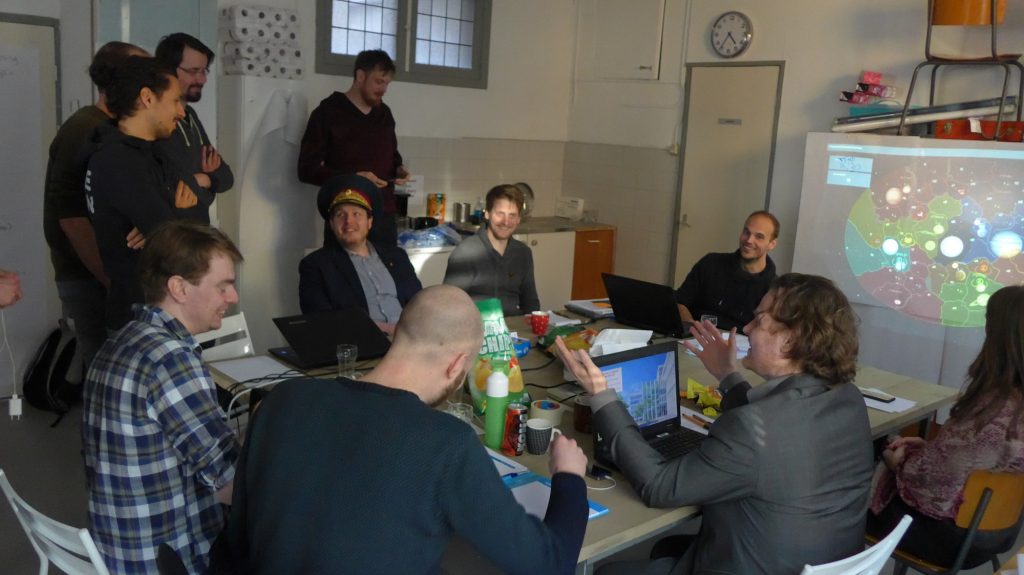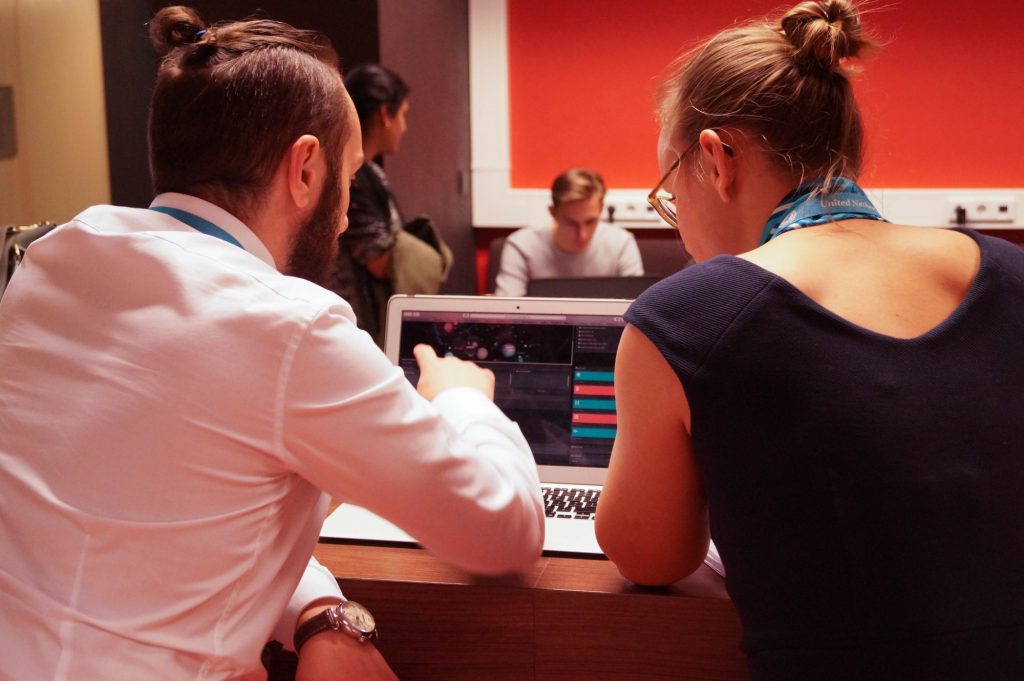Let’s do it Live!
“Step into my office”, the lobbyist for the Duchy of Europa said, holding open the door to the narrow hallway leading to the restrooms. Two nervous representatives from the Titan States entered and the door was shut. The remaining lobbyists and Solar Council representatives in the room could only guess what schemes and machinations were being discussed inside. Not that they noticed, because there was more to worry about. Illegitimate claims of Jupiter, the ongoing humanitarian crises on Mars and Uranus’ moon Miranda and the access to technology to mine the Solar System’s celestial bodies of valuable resources were just a few of the other items on the agenda of the Solar Council.
Welcome to my blog! I will use this website and blog to occasionally post updates about development and upcoming events. Some posts may deal with the more technical aspects of the game and some posts may deal with the game theory. Also, I will use this space to post updates about past sessions.
Recently, I had the privilege to organize another playtest for Governor, a hybrid game about interplanetary diplomacy, negotiation and warfare. The session was held on the 24th of February 2018 and took place in Muntmeesters in Utrecht. Divided over two rooms, seven teams of two to three players each were given the responsibility to represent their world in the Solar Council.

A little background
I have been developing Governor for a little under two years now. It started as a custom-made team building activity for a few colleagues and has been growing ever since, being played by players of various backgrounds: from civil servants and students of international diplomacy to board game enthusiasts and video gamers. Governor is ideally played by 18-27 players, divided in teams of 2-3. Each of these teams represent a nation in the future Solar System. For example, one team may be the United Nations of Earth while another team is the Socialist Republic of Triton. Over the course of a few hours the players negotiate, trade, debate and perhaps even wage war with each other. Successfully completing its goals earns a team victory points. The nation (or nations) with the most victory points at the end of the game wins. The game generally takes place in two physical rooms at once: The Solar Council Room and Outside.
Governing the Solar System
Within the Solar Council Room an elected member of each team sits. These players together form the Solar Council. This council is tasked with the responsibility to draft and approve laws that amend the existing rules of the game. Laws can pertain to specific rules in the game (e.g. “No nation may trade weapons”), specific nations (e.g. “Mercury shall not lay claim to the space surrounding Venus”) or even the way in which the game is played (e.g. “Every second round the Representatives of the Solar Council may leave the Council Room for a bathroom break”). To pass a law a vote is needed. This generally means that a majority of the players have to be in favor of the rule change for it to pass. The Council is presided over by a Chairperson. So far this person has only been myself, but one of the action points for next sessions is to appoint someone else for this, as it has proven to be difficult to manage both the players inside and outside the Solar Council.

Outside of the Solar Council Room all other players are gathered. They play the role of lobbyists for their nation. They are responsible for moving fleets, conducting trade, gathering resources and keeping their Representative informed. Also, they have the opportunity to make deals and forge alliances with other nations, as they can speak and move freely. Their starting point is the Integrated Command Interface (ICI), which is an online tool that presents them with tactical information on the current state of affairs in the Solar System. It has a map of the System, lists the current laws in place and relevant objectives and events, and facilitates trade, combat, fleet movement etc. Most of the work developing Governor so far has gone into creating and maturing the ICI. After the last playtest I still have some bugs to work out, but hopefully I am hopeful that I can present a fully-functioning ICI next session. This also means that I can focus more on developing and balancing the rules of the game instead of just the underlying tech.

Don’t hate the player…
The difference between Governor and many other (board) games is that players are able to influence the rules of the game itself. Through drafting and approving laws that change or amend the existing rules of the game, players are in control of how the game is played. This leads to interesting situations. For example, a situation occurred during one of the first games we organized where Pluto and Triton wanted to merge to become a single nation. This proposal predictably met with resistance from the rest of the Solar Council. Very forthcoming, the two merging nations agreed to help draft a law that would regulate mergers of nations. This included provisions such as that they would only have one vote and they should pay a fraction of their collective resources to the Solar Council out of goodwill. However, when the draft law came to a vote, it failed to pass, even though the merging nations had voted in favor. This was the result of the fact that Earth had been acting somewhat dishonestly towards some of the other nations and when these saw that the representative of the former nation helped draft the law and voted in favor, they voted against. Suffice to say, this put the newly formed nation of Pluto-Triton in a very advantageous position, since they now had two of everything, including votes and victory points.
This is one of many examples of the situations that occur during a game of Governor. In future posts and playtest reports I hope to highlight and analyze more of these situations and explore the many fun and unpredictable directions a game of Governor can take.
The Chairperson opened debate. The Representative of the Socialist Republic of Pluto and Charon took the floor: “Dear Mr. Chairperson, The Politburo of the Glorious People’s Republic of the Pluto and Charon is of the opinion that this law is a discriminatory remnant of a by-gone era. It stands in the way of free trade between the Union of the Fringe, Titan and Europa. Hence, we would like to see it abolished.” The Representative sat down and straightened the rim of his hat. “Dear Mr. Chairperson,” It was now the Representative of the United Nations of Earth’s turn to speak. “we would like to stress again that the payments made to the core planets by the worlds that have now banded together in this so-called ‘Union of the Fringe’ are naught but fair recompense for the opportunities we have given them. Opportunities without which their precious homeworld would now be nothing more than cold rocks floating eternally at the edge of the Solar System.”
“Is that a threat?”, The Representative of Pluto and Charon replied.
“Do you want it to be?”, The Terran Representative responded.
The Chairperson called the two Representatives to order: “Please, gentlemen, let me remind you of the rules of conduct in this committee. Please adhere to them or I will be forced to suspend your voting rights.” The Representatives were quiet and the Chairperson called for a vote on Pluto’s proposal. It passed with a six-to-one vote in favor. The shackles binding the proletariat just became a bit looser.
If you have any questions or remarks or just want to stay informed about developments and future sessions, keep checking this site or e-mail me at gijsvmalsen@gmail.com